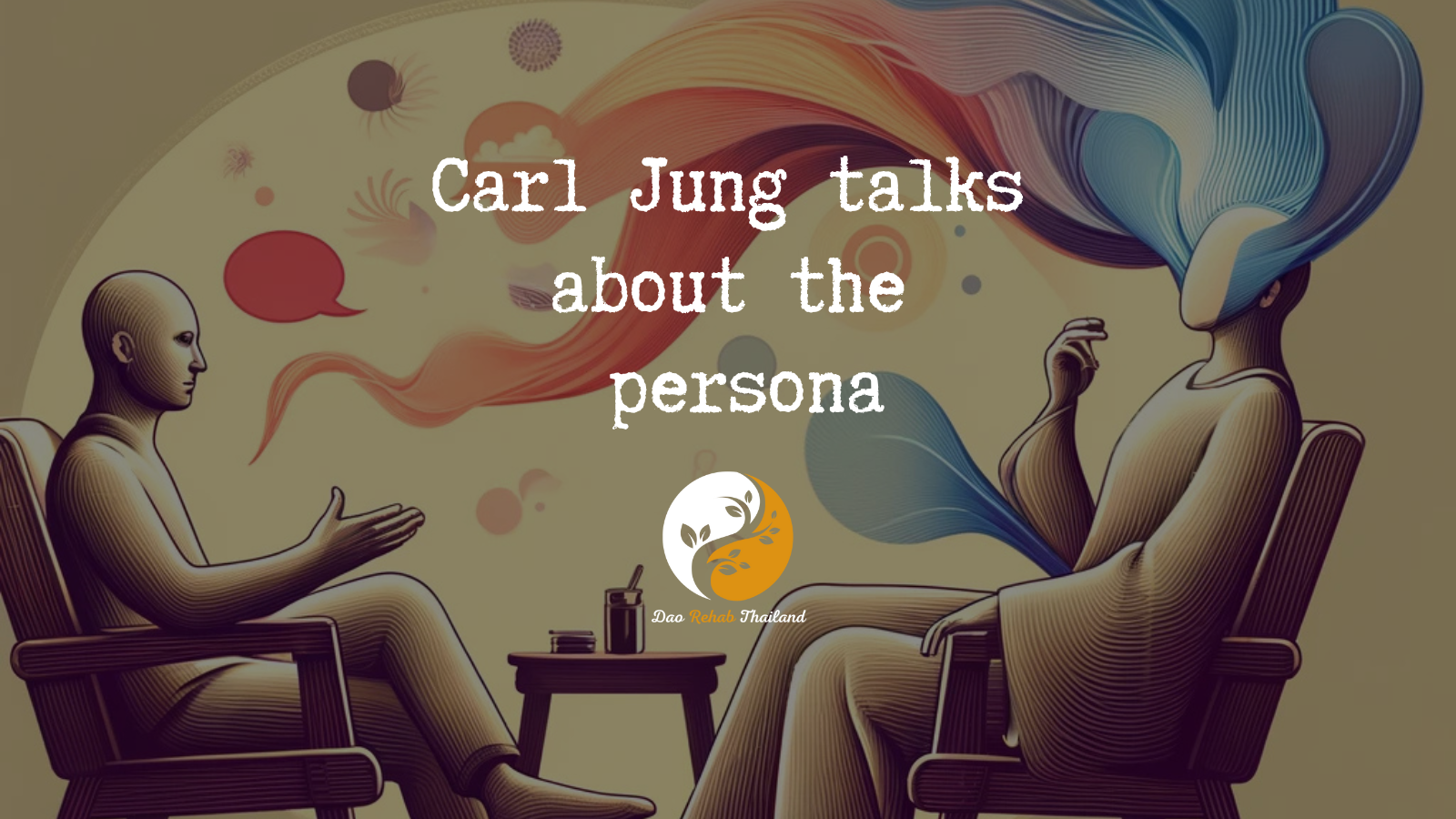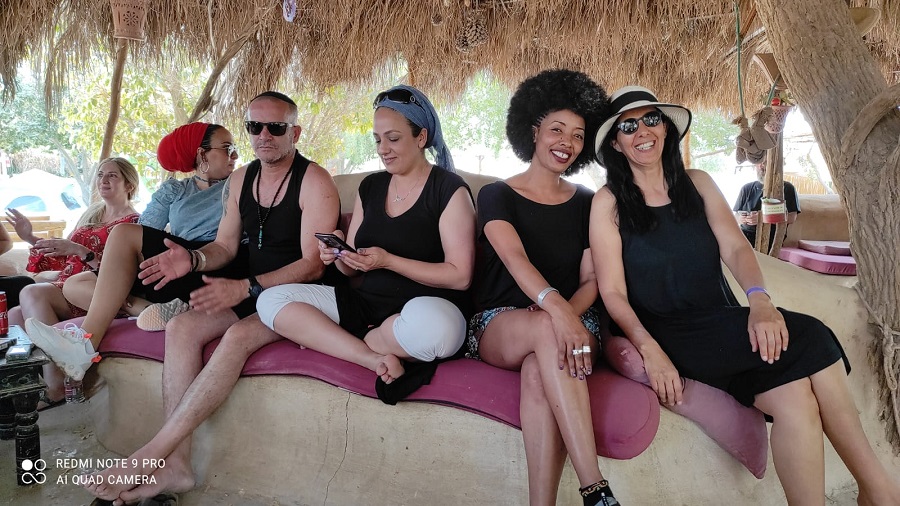
Carl Jung talks about the persona
Carl Jung talks about the persona
“Turning the impossible into possible”

"Detox from Drugs at a Luxury Holistic Center in Thailand and Israel"

Carl Jung talks about the persona
This article is an in-depth and comprehensive discussion of the teachings of the Swiss psychologist and thinker, Carl Gustav Jung, and his unique contribution to the world of analytical psychology. Through a fascinating conversation between two people, the article reveals the central ideas and key concepts in Jung’s teachings, while demonstrating their relevance and importance for understanding the human psyche and personal development.
"Holistic Center for Trauma, Addiction, and Mental Imbalance Treatment in Thailand"
“Come to the beginning of your journey to freedom from addiction to alcohol, drugs, and pills, and rediscover your life within the serene embrace of DaoTherapy Rehab in Thailand—where holistic healing meets empowering recovery.”
DaoTherapy Holistic Rehab
Key Elements of Drugs Detox:
Medical Supervision: Drugs detox must be conducted under medical supervision, as the body may experience withdrawal symptoms. These can include nausea, anxiety, muscle aches, and insomnia. A medical team will monitor and manage these symptoms to ensure the patient’s safety and comfort.
Holistic Therapies:
Holistic Therapies: Many detox programs incorporate holistic therapies such as mindfulness, yoga, and meditation to help individuals cope with stress and anxiety during the detox process. These therapies support the mind-body connection and contribute to overall recovery.
Tapering Process
Tapering Process: Drugs detox often involves a gradual tapering of the drug to reduce withdrawal severity. Doctors will slowly decrease the dosage over time to allow the body to adjust to lower levels of the substance.
Psychological Support:
Psychological Support: Like any addiction recovery process, detox from Drugs includes psychological support. This can involve counseling, therapy, or support groups to address the mental and emotional aspects of addiction.
Post-Detox Treatment:
Post-Detox Treatment: After completing detox, continuing treatment is crucial to prevent relapse. This often includes participation in ongoing therapy, group support, and the development of new coping strategies to maintain sobriety.
When a person overidentifies with their persona
One of the main topics discussed by the participants in the conversation is the concept of persona. The persona, according to Jung, is the mask we wear in society, the image we present to the outside world in order to conform to roles, norms, and social expectations. The participants explain that the persona serves as an interface between a person’s true personality and the outside world, allowing them to function in harmony with their environment. However, they emphasize that excessive focus on the persona can lead to alienation from the authentic self and the development of mental health problems.
The participants expand on this topic and explain that when a person identifies too much with their persona, they may lose touch with their true feelings, needs, and desires. The result may be a feeling of emptiness, dissatisfaction, and even depression. Therefore, it is important to find a balance between the need to conform to society and the need to express their true self. Participants emphasize the importance of self-awareness and inner exploration in order to identify the gap between the persona and the authentic personality, and thus develop a more cohesive and healthy identity.
Another central theme that emerges in the conversation is the distinction between introversion and extroversion. Jung believed that humans tend to direct their libido (mental energy) in a particular direction – inward, towards the self (introversion), or outward, towards the world (extroversion). People with an introverted tendency are described as those who focus on their inner world, on their feelings, thoughts and personal insights. They tend to be introverted, reflective and usually prefer to concentrate on intellectual or artistic subjects. In contrast, extroverts are defined as oriented towards the external world and are motivated by interactions and experiences with the environment. They tend to be sociable, active and seek stimulation from outside.
The participants in the conversation explain that according to Jung’s teachings, every person has both of these directions within them, but one of them tends to be more dominant. Recognizing one’s personal tendency and accepting the opposite tendency can help a person achieve balance and develop their personality in a harmonious way. Understanding the differences between these two types of psyche is also important for creating effective interpersonal communication and more satisfying relationships.
The concepts of intuition and thinking are also among the main topics covered in the conversation. Intuition, according to Jung, is an unconscious process of perceiving reality, which allows a person to absorb information and insights beyond what can be discerned through the senses. It is a kind of “sixth sense” that provides a deep and integrative understanding of the world. The participants describe intuition as a way to bridge the gap between consciousness and the unconscious content, and as an important tool for personal development and decision-making.

contact us
Contact us with your questions
We would love to speak with you! Feel free to reach out with any questions.

get in touch
Schedule a free consultation
Schedule a free consultation with our team and let’s make things happen!
In contrast to intuition, thinking is defined as a rational and conscious function.
In contrast to intuition, thinking is defined as a rational and conscious function of processing information. It is the ability to analyze, organize, and draw conclusions in a logical and logical manner. The participants explain that according to Jung, thinking and intuition are two complementary ways of dealing with reality, and both are necessary for optimal functioning. They emphasize the importance of developing these two functions and balancing them, in order to expand the scope of understanding and dealing with the world.
Another key topic mentioned in the conversation is synchronicity – a phenomenon in which events appear to be related to each other in a deep and meaningful sense, but without a logical causal connection. Jung saw synchronicity as an organizing principle operating in the universe, reflecting the connection between human consciousness and the external world. The participants describe how experiences of synchronicity, such as unexpected encounters or surprising coincidences, can have profound meaning for the individual and indicate processes developing in the soul. They emphasize that awareness of synchronicities and openness to the insights that result from them can aid in spiritual development and in finding meaning and purpose in life.
Finally, participants discuss psychic energy – a central concept in Jung’s analytical psychology. This energy is seen as a dynamic current flowing through the soul, driving various psychological processes. Jung believed that psychic energy is limited, and that the way it is invested largely determines a person’s mental health. Participants explain that an important goal in personal development is to achieve balance and harmony in the flow of psychic energy, so that it is directed into healthy and satisfying channels. They describe the process as achieving integration of the personality, in which psychic energy is optimally utilized for self-fulfillment and the realization of the individual’s inherent potential.
In conclusion, the article presents in depth and eloquently the central ideas of Carl Jung’s theory, while emphasizing their importance and relevance for understanding the human psyche and personal development. Through the comprehensive discussion of topics such as persona, introversion and extroversion, intuition and thinking, synchronicity and psychic energy, the article reveals the richness and depth of the insights inherent in analytical psychology. The participants demonstrate how understanding and internalizing these ideas can help a person cope with life’s challenges, develop self-awareness, and realize their inherent potential.
The article also serves as an invitation for readers to delve deeper into Jung’s theory and apply these principles in their lives. It encourages inner inquiry, self-reflection, and personal growth, while emphasizing the importance of these processes for mental health and quality of life. In a modern and dynamic world, where humans face complex and diverse challenges, Jung’s insights constitute a valuable compass, guiding us towards a conscious, full, and meaningful life.
Central insights
1. The ego is only a part of who we are, and the true self is much more than that.
2. Every person has several personas that they present to the world, but the truth lies beyond them.
3. Intuition is a powerful tool that can give us deep insights, beyond what our senses perceive.
4. There are different types of people – introverts and extroverts, rational and intuitive.
5. Psychic energy is an abstract concept that can appear in many different forms.
6. Parallel events sometimes occur in our lives for no apparent reason, but they may have deep meaning.
7. Fantasy is an integral part of our mental life, even if we are not always aware of it.
8. Each person’s psychological reality is shaped by their personal history and current circumstances.
9. To understand ourselves and the world, we must explore both the conscious and the subconscious.
10. The search for meaning and significance in life is an ongoing journey of self-discovery.
Osho's practical
1. Be aware of your different personas and strive to be true to your true self.
2. Open your intuition and listen to the deep insights it provides.
3. Try to understand yourself and those around you beyond stereotypes and labels.
4. Be curious about the different psychic energies at work in your life.
5. Pay attention to significant coincidences and reflect on their deeper meaning.
6. Do not suppress your fantasy and imagination, but allow them to come to expression.
Psychological Support:
Psychological Support: Like any addiction recovery process, detox from Subutex includes psychological support. This can involve counseling, therapy, or support groups to address the mental and emotional aspects of addiction.
self-talk mantras:
1. I acknowledge my different personas, but know that they are only a part of who I truly am.
2. I nurture my intuition and trust the deep insights it gives me.
3. I embrace the complexity within me and respect the many sides of my personality.
4. I am open to the flow of psychic energy within me and allow it to guide me.
5. I accept the mystery of life and find inspiration in it to continue exploring and discovering.
Thought provoking questions:
1. Are you aware of the different personas you adopt in different social contexts? How do they reflect or hide your true self?
2. How do you react when your intuition contradicts your rational logic? Are you willing to trust your deep inner feelings?
3. Try to identify moments in your life when meaningful “parallel events” occurred. What can they teach you about your inner reality?
4. Do you feel that you live in harmony with your true self? If not, what prevents you from expressing it freely?
5. Take a moment to observe the thoughts, feelings, and impulses that arise in you throughout the day. Are they truly “yours” or are they the product of external influences?
6. How do you deal with the gap between your ideal self and your real self? Do you accept yourself despite your imperfections?








